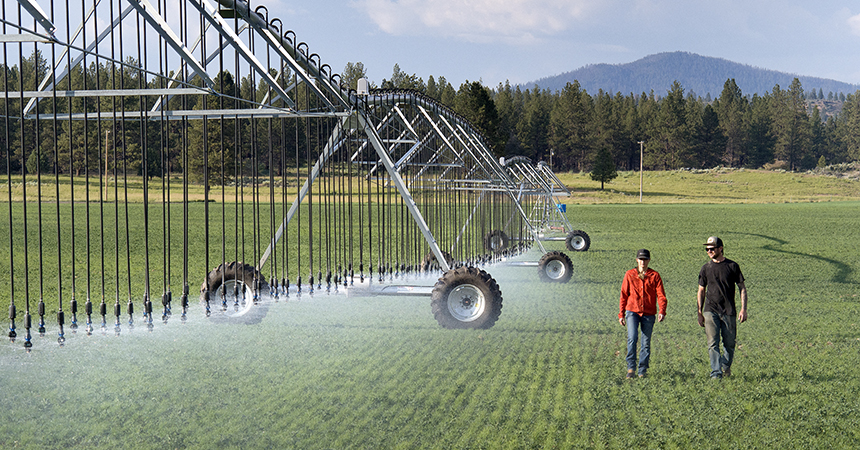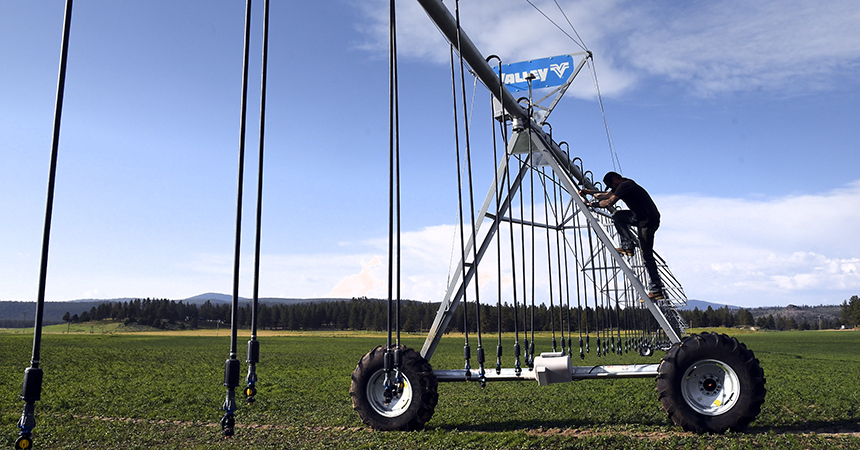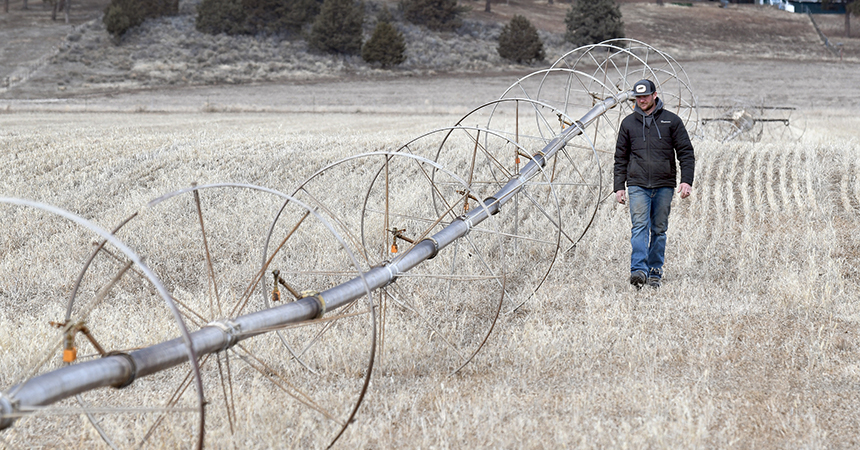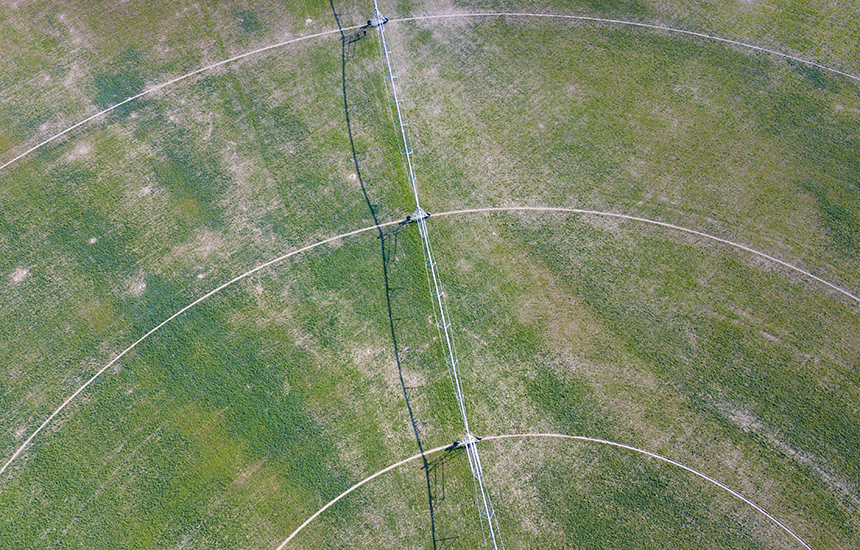Cameron and Garrett Duncan, owners of Duncan Livestock and Hay, have lived in Klamath County for nearly 20 years, and have experienced firsthand the impact of prolonged drought in the region. So in 2023, to protect their land and livelihoods, the Duncans began the process of upgrading the irrigation system on their 230-acre farm to save water, energy, money and labor.
For the Duncans, upgrading their system was not only important to conserve precious resources, but it was also the first and most important piece of the puzzle to create a more sustainable farm.
“Approaching our farm sustainability-first is incredibly important to us. We want to be proactive with our land, and keep it productive for as long as possible,” said Cameron Duncan. “That starts with better water management and irrigation practices.”
During their irrigation upgrade process, the Duncans worked with local organizations including Energy Trust of Oregon, Sustainable Northwest and Wy’East Resource Conservation and Development for strategic support and an energy assessment, which opened the door for a $250,000 grant from the Oregon Watershed Enhancement Board. The grant, in conjunction with Energy Trust irrigation incentives, covered a large portion of the initial irrigation upgrades on the Duncan’s property.
These upgrades included replacing existing wheel lines with a mechanized pivot system, as well as a new pump station and variable frequency drive (VFD). These were installed by Energy Trust trade ally J.W. Kerns, an irrigation contractor out of Klamath Falls.
By installing their new system, the Duncans expect to save over 240,000 kWh of energy – not to mention hours of manual labor.
“What used to be a multi-week, labor-heavy process now takes less than three days and with little effort from us,” said Cameron Duncan. “We can also reinvest the money we’re saving on water and energy bills back into the business.”
Wheel lines, while still a popular mode of irrigation across agricultural communities, are inefficient. To fully water a field, the operator must go out multiple times a day to unhook the line, restart the engine, and then move the wheel line over to the next section. This process can take weeks. Much of the water can also be lost to wind or evaporation before reaching the crop.
“Pivot systems are becoming more popular in our area because every drop counts, and people are wanting to be as efficient as possible,” said Luke Molatore with J.W. Kerns. “However, cost is often a barrier, so we appreciate working with Energy Trust so more of our farmers have access to incentives and savings.”
Energy Trust offers different irrigation incentives. Specific upgrades include:
- Irrigation System Conversions: Changing to a pivot system like the Duncans is a great option. Other system options include drip or linear.
- Variable Frequency Drive installation: Automates the irrigation pump depending on demand, saving water and energy.
- Irrigation hardware replacements: Energy Trust offers rebates on gaskets, sprinkler heads, nozzles, etc. that are leaky or inefficient.
Irrigation upgrades are one of the first, and best, options for small farmers looking to save water and money. If interested in learning more, visit www.energytrust.org/solutions/agriculture-irrigation-improvements or contact us at 1.866.202.0576 or production@energytrust.org.




